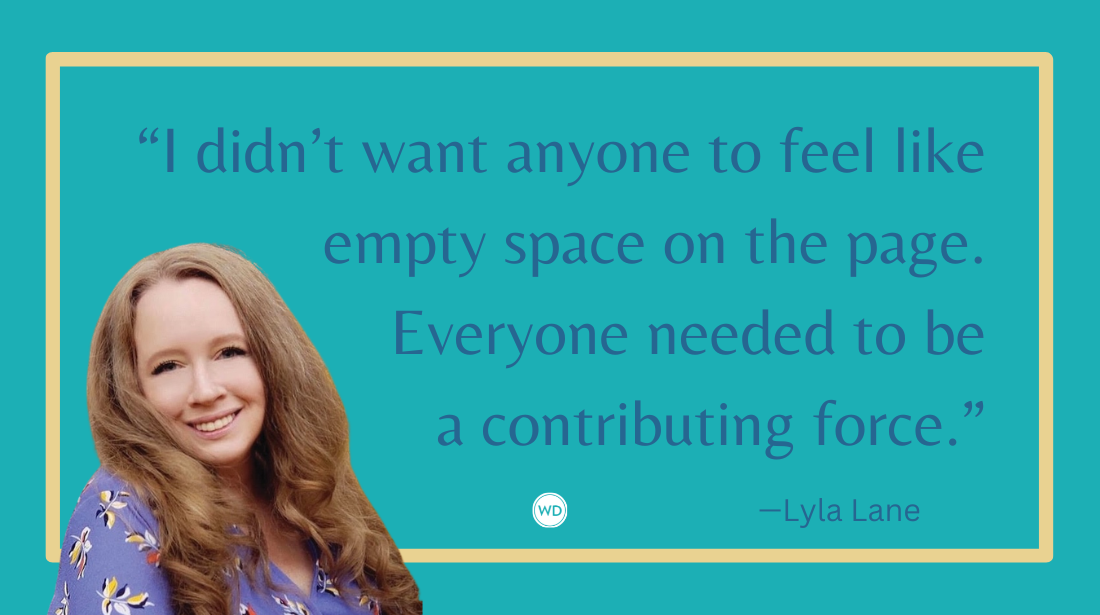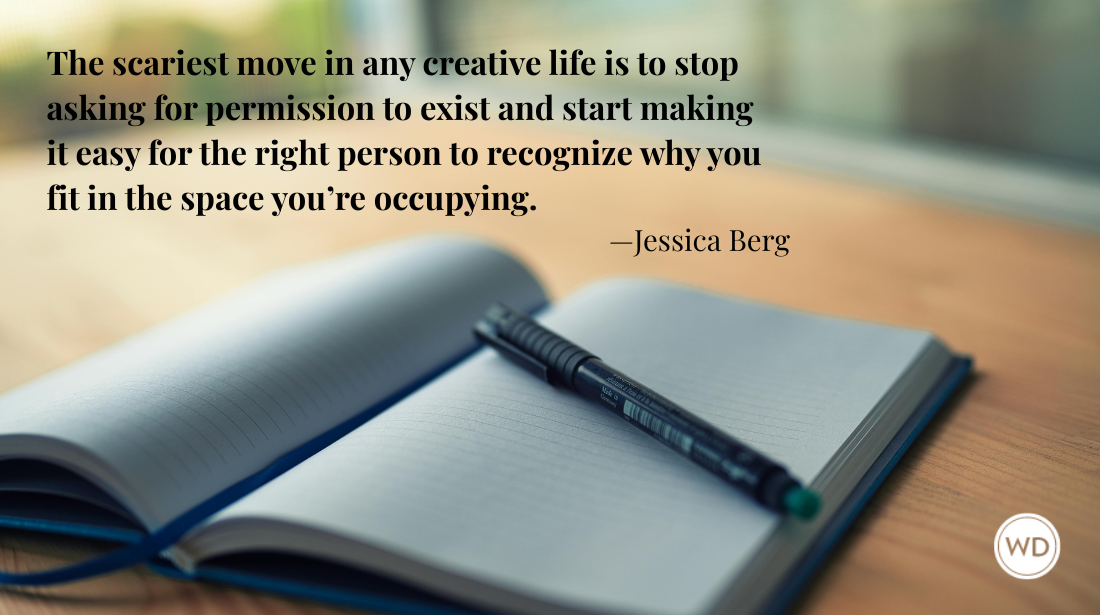2021 February Flash Fiction Challenge: Day 1
Write a piece of flash fiction each day of February with the February Flash Fiction Challenge, led by editor Moriah Richard. Each day, receive a prompt, example story, and write your own. Today’s prompt is to write a story with no dialogue.
Time to get writing! If you’re on Twitter, Facebook, or Instagram (or anywhere else), be sure use the #FlashFictionFeb hashtag. Now, let’s get cracking!
For today’s prompt, write a story with no dialogue. It could be a story about a place or a person or anything, as long as nothing speaks.
Remember: These prompts are just starting points; you have the freedom to go wherever your flash of inspiration takes you.
Note on sharing your work: If you wish to share your stories, scroll to the bottom of this page and use the comments section. If this is your first time commenting on the site, go to Disqus to create a free new account, verify your account on this site below (one-time thing), and then comment away. (If you happen to run into any issues posting, please just send me an e-mail at mrichard@aimmedia.com with the subject line: Flash Fiction Challenge Commenting Issue.)
Here’s my attempt at a story with no dialogue:
Contact
I imagined what an honest listing might look like. 2 bed, 2 bath; partially furnished; reports of ghost activity; utilities included. $1,500/month.
But of course, he wouldn’t dare.
It took a while for a new occupant to arrive. I’m never sure how long. But then the landlord was standing in the driveway, eyeballing the windows. Sometimes I wonder if he could see me when the light was just right. He never seemed to mind coming to the house, but he didn’t usually stick around, either. He twirled a keyring on his thick finger.
She came alone in a beat-up Ford Escape packed window to window with boxes. There was no ceremony. She took the keys from the landlord, nodded as he said something to her. She unlocked the front door and set the first box inside. She asked about me with a sort of off-hand curiosity. He shrugged, gestured vaguely into the house. Asked if she was married. She twisted the diamond ring on her finger and told him that she was not.
The landlord left us.
I walked the house with her, as I did with all new occupants. She wiped her fingers through the dust on the bedroom windowsill, opened the ice maker in the freezer, fluffed a pillow on the sagging couch. After a quick stop in the bathroom—which I did not accompany her to—she began bringing in boxes.
One went into the kitchen; two to the bedroom; one to the bathroom. She had three clear plastic tubs of books, which piqued my interest; hardly anyone lugged so many books around when there were phones and Kindles and giant TVs. When she was done, she groaned and arched her back, her dark hair cascading off her shoulders in a frizzy rush. I couldn’t remember what it was like to have a body. The one I had now was sort of opaque and numb. I couldn’t remember what it was like to be alive.
She melted to the floor and starfished her body across the hardwood. I hovered near the kitchen (not physically, just anxiously) and watched her. She had sweat stains on her stomach, under her arms. I wondered how long she would be staying here. I didn’t know her name.
Outside, a lawnmower droned.
I thought maybe she would unpack, but she didn’t. Instead, she pulled a few things out of the bathroom box and then showered with the door closed. Not everyone did, when they lived alone here. Maybe this habit had to do with the wedding ring but missing spouse. Or maybe she was used to roommates or parents or siblings. When she was done, she went into a bedroom and closed the door. I stuck my head in the bathroom, just to see if she’d set anything up yet. She hadn’t; just the bottles of shampoo and conditioner and a bar of soap in the shower. In the fog on the mirror, she’d scrawled one slowly-melting word: Home.
I followed her from the bedroom to the living room. She pulled a laptop out of a box and set it up at the kitchen table. It made a horrible sound as it started up, like a jet getting ready for takeoff. She looked at local options on DoorDash, UberEats, and Grubhub before settling on Chinese takeout. She shut down the laptop and then tapped her fingers on the table.
She got up, took the few steps to the kitchen. From the kitchen box, she pulled out a box of wine and a single wine glass. She went back to the table with them.
She was so quiet, I realized with a jolt. I was used to having to be quiet. No one should talk to me; I should talk to no one. But people usually talked to themselves or a pet. They played music too loudly or put on cooking shows with ridiculous premises. They put loneliness outside with silence, where they belonged.
But not this woman.
I sat on the couch and watched her sip her wine. She made it through a single glass before the door rang. Bringing the bag back to the table, she set out a tub of egg drop soup and popped the lids on containers of lo mein and General Tso’s. She held her glass to the little plastic spigot and poured herself another serving of wine.
She ate in total silence. She drank her wine. Eventually, she set down her chopsticks and made a sound: a sigh. It sounded like air was leaking out of her from a crack in her soul.
When she moved to sit on the floor, I moved to sit across from her. She wasn’t looking at me, not really, but it felt like she would be, if she shifted her eyes just a little bit to her right. Instead, her eyes were unfocused, aimed over my shoulder. I didn’t know anything about who I’d been, what my life had been like, but in that moment, I felt like I knew the look of this stranger. It was loneliness, yes, but it was also something else. It was exhaustion, pressed into creases under her eyes. It was anxiety in the bite marks on her lower lip. Wistfulness in the way her thumb kept smoothing over the underside of her diamond ring. Sitting on the floor in the silence with her boxes still packed around us, it was like everything was holding its breath, waiting for something to happen.
Maybe she was used to living with ghosts.
The thought spurred me to my feet. I paced for a while, watching her, waiting for her. Nothing happened. Nothing would keep happening, I felt, like the house had been put under a spell. But I did not want her to sit here, drunk, alone, stuck wherever her thoughts had taken her. I wanted to let her know that this was a good house. A safe house. It had sheltered many people, seen every disappointment and joy and all that’s in-between.
I wanted to tell her that I knew what it was like to be alone, even when you’re not alone.
I came to a stop near the kitchen island. After a brief moment of hesitation, I reached out and rapped my knuckles against the granite countertop three times.
People don’t really like the knocking. That’s why it’s a horror trope, after all. Some jump or look for the source of the sound or call out questions like, “Who’s there!”
She did not react. Not immediately. Instead, she sat still and breathed quietly before taking another small sip from her glass. Then, after another moment, she reached out and knocked three times on the floor.
I smiled.







